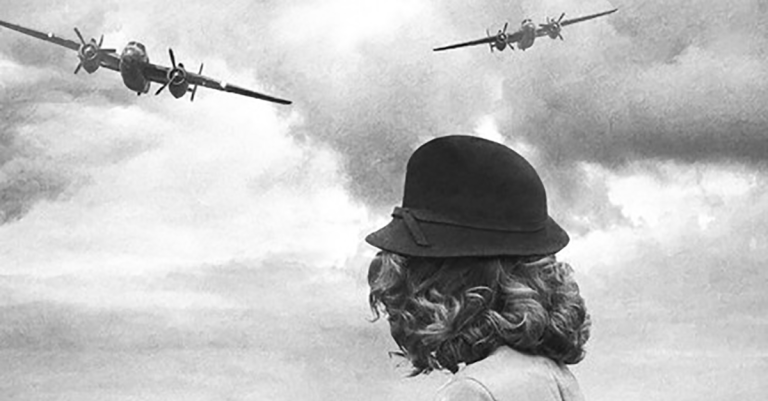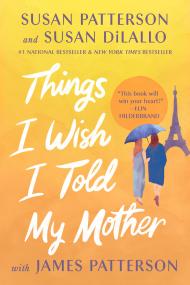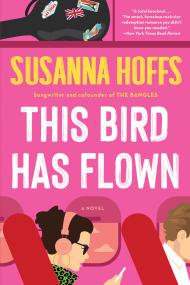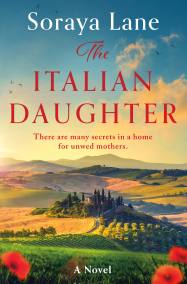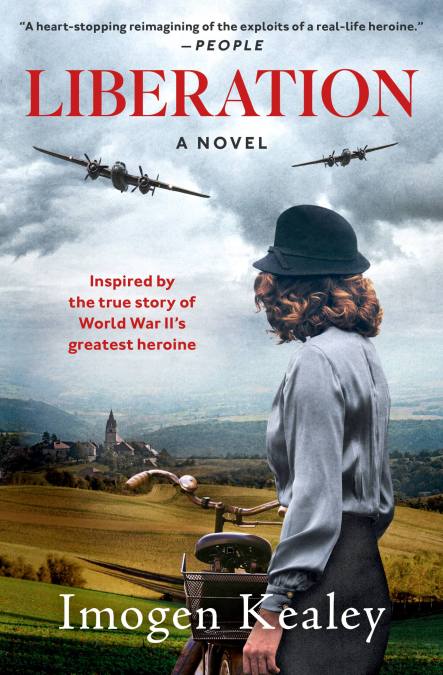PART I
MARSEILLE, JANUARY 1943
This was a bad idea. A very bad idea. Damn it.
Nancy closed her eyes for a moment as she crouched behind the remains of a blasted wall and took a deep breath. The smell of burning buildings was clawing at the back of her throat, the smoke stinging her eyes, and squeezed into her narrow hiding place her muscles were beginning to cramp. She could hear the voices of the approaching German patrol clearly now.
“Auf der linken Seite.” On the left side.
The wall she was hiding behind had yesterday been part of a house, a home. Just one of the thousands of narrow tenements in this corner of Marseille, where the city’s less respectable inhabi- tants had for years brawled, grifted and bargained their way from one day to the next.
Now she sheltered in the remains of a small dirty room in her second-best coat and third-best high heels. The bloody things were pinching. The cloudless winter sky was visible through the remains of the upper story, but this room had only one door. She’d made a stupid mistake when she ducked in here to avoid the German patrol. They were swaggering through the ruins while their colleagues continued the business of setting explosives higher up the hill, chasing out the former residents of the Old Quarter from their holes. Going from house to house. And this house was next. Dull crumps and the rumble of falling masonry, together with occasional bursts of gunfire echoed dryly from higher up the hill.
“They have found more rats, boys,” said an older voice, prob- ably the officer.
“But I want a mouse,” one of his men replied, and they laughed. Most of Nancy’s wealthy friends wouldn’t have dreamed of coming to this part of town, even before the war. Too danger- ous. Too strange. On her first day in Marseille, though, five years ago, Nancy had found her way into the steep narrow streets of the Old Quarter and she had fallen for it and the sinners and drinkers and gamblers she’d found there. She loved all its angry, messed-up color and contrast and dived straight in. It was her talent for going to places she shouldn’t, of course, which meant she could earn a living as a journalist in France. And she knew that being Australian, she could get away with things most French women, so careful of their reputations, wouldn’t dream of doing. In the years since then, Nancy had moved through these twisting roads and alleyways without fear, sharing ciga- rettes with the corner boys and trading foul language with their bosses. Even when she got engaged to one of the richest indus- trialists in the city, Nancy didn’t stop going wherever the hell she liked. And it had worked out OK. When the war began and supplies started to dwindle even in Vichy territories, Nancy was
already good friends with half the black marketeers in the city. “It’s empty, Captain!”
“OK, on to the next, lads.”
Then the Nazis arrived in the city with their ugliness and casual violence, and the fiction that any part of France remained unoccupied fell apart, and then the Nazis decided the way to deal with the provocateurs, smugglers and thieves of the Old Quarter was to burn their homes to the ground and shoot anyone who didn’t make a run for it.
So crouched behind the wall, with the patrol coming ever closer, Nancy had to admit it, reluctantly, even to herself: coming here on one last mission while SS troops rooted through the rubble for survivors and escapees was a bad idea, and coming here when the one person the jack-booted sadists really wanted to find was the Resistance courier and people smuggler known as the White Mouse, and you, as well as being Miss Nancy Wake, former journalist and pampered princess of the Marseille upper crust, were the White Mouse, made it a really, really no good, not clever at all, bad idea.
Not that she’d had a choice. Every mission she went on was important, but this one was vital and had to happen today, even while the Germans tore the world to shreds around her. She’d left the luxurious villa she shared with Henri determined, slipped past the patrols, tracked down her contact, bullied the tricksy twitchy devil into holding up his side of the bargain and got what she had come for. The package was secure under her arm, wrapped in more Nazi-loving bullshit from the Vichy press. It had cost her a thousand francs and was worth every centime—if she could make it back alive.
She had to get out of here. Now. No way was she going to reach her next appointment in time if she got picked up and questioned, even if they fell for the “What me, officer? Oh, I took a wrong turn on the way back from the spa. How smart you look in that uniform. Your mother must be so proud” act. God knows she’d winked and flirted her way through plenty of checkpoints in the last two years, a dash of rouge on her lips, with secret communiqués and radio parts for the Resistance sewn into the lining of her handbag, or strapped tightly to the inside of her thigh. But she had to, had to, make that appointment.
Two men from the patrol were already in the hallway. Double damn. If she could get them out onto the street again she could make a dash through the back of the building. It was that or shooting her way out.
She reached into her handbag, fished out her revolver and wet her lips. No time to fret about it. This thing just needed doing. She lifted her head and peered over the edge of the shat- tered window frame and looked right and left along the street. The house on the other side of the road and to the east still had parts of its second floor standing. Somebody being stingy with the TNT. Nancy could see a table, a vase placed carefully at its center in a room which no longer had walls or ceiling. The single blown rose it held shifted in the breeze made by the sucking currents of the fire. Excellent.
Nancy snapped open the cylinder of her revolver and emptied the bullets into her palm, then hurled them overarm across and along the narrow street. One of the soldiers on the street twisted round with a frown, sensing movement. Nancy flattened herself against the wall again and held her breath. One. Two. Then a sudden crack as the fire found the first bullet, then another.
“Return fire!”
The two soldiers in the hallway turned back out into the street and started firing into the burning building. Nancy could smell the cordite on their clothes as she slipped out of the room and made a dash for the back of the house. The patrol was still firing at ghosts. She pushed open the back door, ran through the narrow, rubble-strewn yard and plunged into the maze of name- less back lanes until she tumbled out into the relative peace of Rue de Bon Pasteur. Empty. She ran straight down the hill with a whoop of victory, her package still under her arm, and one gloved hand holding her elegant straw hat in place, trying hard not to laugh and skidding into the square like a kid freewheeling on a bicycle.
Straight into another patrol. Or almost. They had their backs to her. She threw herself back against the nearest wall and inched slightly up the hill. From the upper window of a house opposite a cat watched her, and blinked.
Nancy looked up at it and held her finger to her lips, hoping the creature couldn’t tell at this distance that she was more of a dog person. Two feet east of her she saw the shadow of an opening in the blank and empty street. An alley, hardly big enough to walk down and silted up with God knew what rubbish.
She reached it and slipped in sideways, trying not to let her coat touch the walls, which looked suspiciously greasy. So did the cobbles beneath her feet. God, the smell. Even the drains of the fish market in mid-summer didn’t stink like this. She breathed through her mouth, deafened by the thud of her own heart. She hoped her maid would be able to save her shoes, even if they did pinch. She could hear the voices of the patrol again. They had grabbed hold of some poor bugger, and she listened to them yelling at him, and his softer replies. He sounded des- perate, afraid.
“Don’t show them you’re scared, mate,” she whispered between clenched teeth. “It just gets their blood up.”
“To your knees!”
Not good. Nancy looked up at the narrow strip of bright blue sky above her and prayed. Not that she believed in God, but maybe the Frenchman did, or the German with a gun. How many people were hiding in the houses around them now, listen- ing but too frightened to move? Maybe they were praying too. Maybe that would make a difference. Maybe not.
She heard the click of a rifle bolt being slid into position, then a yell and running feet coming up the hill toward her hiding place. The idiot was trying to make a break for it. The crack of the shot echoed off the high walls. She heard the guttural gasp, very close, as the bullet hit, and looked sideways in time to see him fall, arms out in front of him, parallel with her hiding place in the middle of the steep cobbled road. His face was turned toward her. Christ, he was just a kid. Eighteen at most. She stared at him and it seemed he saw her. His skin was the smooth olive of a boy born under the Marseille sun, deep brown eyes, high cheekbones. He had on the collarless linen shirt all the working men of the area wore, thin with washing but kept blindingly white by a devoted mother. Lord, his mother. Where was she? The blood was pooling under his chest, and trickling down the slope between the high curved stones. His lips were moving, as if he was trying to whisper some secret to her. Then her view of his face was blocked by the boots of a German soldier. He looked back toward the square and shouted something Nancy didn’t catch. A short reply.
The soldier unslung his rifle from his shoulder, worked the bolt and lifted it. He took a half step back so Nancy could see the lad’s face again. The world narrowed to this patch of cobbled road, the yellow plaster wall opposite startled with sunlight, the movement of the dying boy’s lips. Crack! Blood and brain matter fountained across the road. His body twitched and went still, the light in his eyes suddenly, absolutely extinguished.
Nancy felt a plume of rage lift through her. Lawless, murder- ous bastards. She put her hand in her purse and closed her hand around her revolver, before remembering with a bitter lurch that it was empty.
“Ah, shit!” the soldier said quietly, wiping away a smear of blood from the edge of his tunic. He’d been standing too close. He’d know better next time. He looked up at the window where the cat had been, then right and left along the street. Nancy had nowhere to go. One moment more and he would see her and there was nothing she could do, and if she couldn’t kill him she’d have to talk her way out of it. She began to prepare her excuses and blandishments. Should she play the frightened girl? Or perhaps the outraged French housewife, intimidating even the SS with talk of her husband’s wealth, her high-ranking friends? Attack can be the best form of defense. Just to scream in his face would be a pleasure, even if it got her shot in the end.
Another shout from the square and the soldier turned away. He walked back down the hill, slinging his rifle over his shoul- der and leaving the White Mouse, shaking with rage, in her hiding place.
She had to wait, so she counted to fifty and watched the dead man’s face. One. Hitler speaking in Berlin, Nancy standing in a small group of journalists, not understanding the words but feeling the wild, ugly enthusiasm of the crowd. She had glanced round at her friends, all foreign correspondents based like her in Paris, all like her in Germany to see for themselves what this funny little man was up to. They were to a man older and much more experienced than she was, but they looked, all of them, as scared and sickened as she felt. Two. Vienna, thugs in the brown shirts of the Sturmabteilung, smashing the windows of Jewish businesses, dragging the owners out into the streets by their hair and whipping them in front of their neighbors; the neighbors turning away; the neighbors laughing and applauding. Three. Poland invaded, the declaration of war and the months of waiting which followed. Four. Cramming refugees into her ambulance as France fell. Five. German fighters strafing the lines of fleeing women and children with machine-gun fire. Six. Henri returning from his stint at the front heart-sore and humiliated by the speed of France’s defeat. Seven. The day that Paris fell.
The images came in an orderly procession. Nancy clenched her fists. She’d sworn on that day in Vienna that if she ever had any chance to do the Nazis harm she’d take it, and everything she’d been through since only strengthened that conviction. She fed off her hatred for them. She delighted in every tiny victory. She believed that Hitler was a mad man, and that smashing himself on the great rock of Russia would end him. She would do anything she could to bring the collapse of his vicious, hate-filled regime a moment closer. She knew she was supposed to be afraid, stay quiet, keep out of trouble, and wait until Hitler and his foul crew imploded, but she was too angry to be afraid, and she didn’t hold with keeping quiet.
Fifty. This man. This boy, caught up in the occupation and destruction of the Old Quarter of Marseille casually murdered by an invader with a rifle. The light leaving his eyes. Nancy stepped back out into the street and walked down to the market place without looking at the corpse. She would never forget him. She unlocked her bicycle from the railings by the water fountain and, putting her package in its wicker basket, wheeled it out of the quarter.
When she reached the seafront, the glittering Mediterranean jewel-like under the cool winter skies, she took off her glove, leaned forward and ran her perfectly manicured nail down the edge of the newspaper wrapping, slicing it open, neat as a knife. The package held a bottle of Krug 1928, the champagne and the vintage Henri had ordered the night they first met in Cannes. Nancy turned the parcel so the tear wouldn’t show and pushed off on her bicycle toward the smart end of town, where Henri and she had lived together since war broke out. The shock of seeing the man die was fading now. She lifted her face to the sun and let the breeze cool her skin. Damn the Germans. As the White Mouse the Germans had already put a price of a hundred thousand francs on her head, so she must be doing something right. A hundred black-market bottles of excellent champagne. She’d drink to that, but now she was going home to dress for her wedding.




